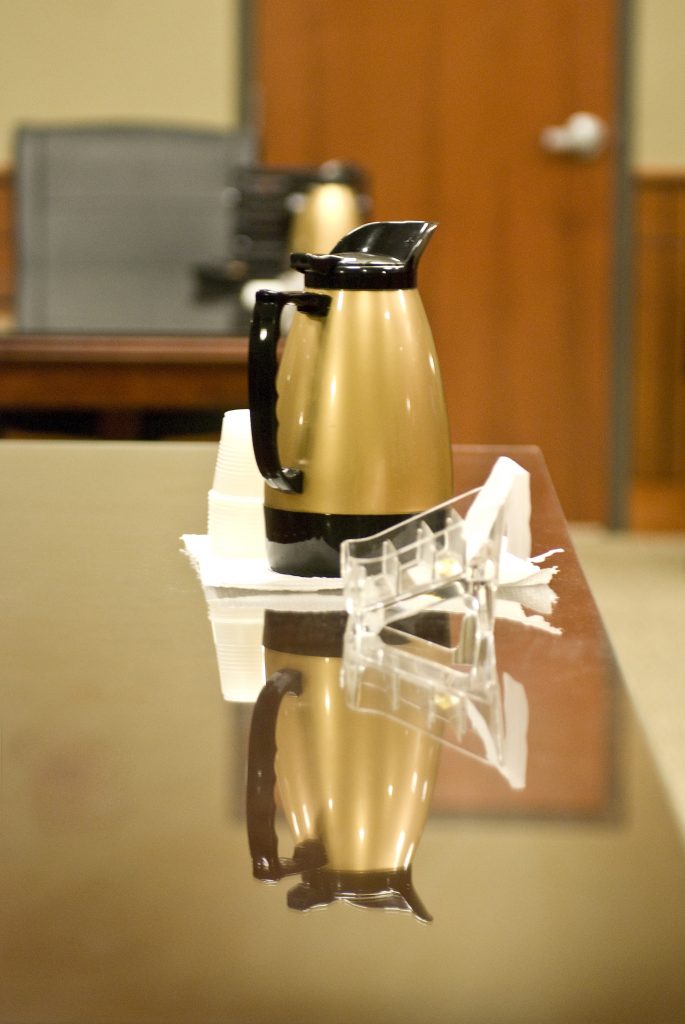 Lawsuits can be quite complicated, even for seasoned attorneys. However, when one is representing himself, the complications can be even more complex. Especially, when the law does not support your claim. The following case demonstrates the need for an experienced attorney when it comes to constitutional rights violation allegations and litigation.
Lawsuits can be quite complicated, even for seasoned attorneys. However, when one is representing himself, the complications can be even more complex. Especially, when the law does not support your claim. The following case demonstrates the need for an experienced attorney when it comes to constitutional rights violation allegations and litigation.
In 2013, the Louisiana state court convicted Harold Joe Black for the distribution of cocaine. Mr. Black was taken into custody. While in custody, Mr. Black appealed his conviction, but it was affirmed. In addition, Mr. Black made numerous unsuccessful applications for state post-conviction relief and federal habeas corpus relief.After Mr. Black was released from custody, he filed a 42 U.S.C. § 1983 complaint, pro se. Pro se, means that Mr. Black represented himself and did not have assistance from an attorney. A 42 U.S.C. § 1983 complaint is a type of lawsuit that allows an individual to seek a remedy against state actors who violated his or her constitutional rights.
Mr. Black’s complaint alleged that various state and federal officials, and Mr. Black’s appointed counsel, violated his constitutional rights in connection with his arrest, trial, and efforts to obtain appellate and post-conviction relief. Mr. Black’s case was referred to a magistrate judge pursuant to federal law. The magistrate recommended that the case be dismissed with prejudice. The magistrate concluded that Mr. Black’s 42 U.S.C. § 1983 claim was barred by the favorable-termination rule set forth in Heck v. Humphrey. The district court agreed with the magistrate’s recommendation, and accordingly dismissed Mr. Black’s lawsuit.
 Louisiana Personal Injury Lawyer Blog
Louisiana Personal Injury Lawyer Blog


 Ponzi schemes ultimately come to an end and unfortunately cause a lot of pain, suffering, and litigation. The Stanford Ponzi scheme is no exception. As demonstrated in the following case, the complex nature of such schemes demonstrates the need for excellent legal representation if you are the victim of an unscrupulous Ponzi schemer.
Ponzi schemes ultimately come to an end and unfortunately cause a lot of pain, suffering, and litigation. The Stanford Ponzi scheme is no exception. As demonstrated in the following case, the complex nature of such schemes demonstrates the need for excellent legal representation if you are the victim of an unscrupulous Ponzi schemer. The commencement of pro se litigation, meaning without attorney representation, is no easy task. A common aspect of pro se litigation involves a request to proceed in forma pauperis (IFP). A granted IFP request allows a pro se litigant to have the prepayment of fees or costs waived.
The commencement of pro se litigation, meaning without attorney representation, is no easy task. A common aspect of pro se litigation involves a request to proceed in forma pauperis (IFP). A granted IFP request allows a pro se litigant to have the prepayment of fees or costs waived. This post continues our discussion on the United States Fifth Circuit Court of Appeal’s analysis of the public policy exception in
This post continues our discussion on the United States Fifth Circuit Court of Appeal’s analysis of the public policy exception in  The world we live in today is more interconnected than ever before. International commerce has led to rapid economic development in the United States and abroad. As more and more firms participate in international commerce, complex legal disputes arise. International disputes involve a multitude actors of different nationalities, implicating various national and international legal frameworks. In the mid-20th century, the United States and countries around the world sought to harmonize international commerce by codifying rules governing the resolution of international disputes. As a global commercial hub, United States courts have been pivotal in interpreting these international rules and more generally, contributing to the development of private international law. In 2015, the United States Fifth Circuit Court of Appeal interpreted the
The world we live in today is more interconnected than ever before. International commerce has led to rapid economic development in the United States and abroad. As more and more firms participate in international commerce, complex legal disputes arise. International disputes involve a multitude actors of different nationalities, implicating various national and international legal frameworks. In the mid-20th century, the United States and countries around the world sought to harmonize international commerce by codifying rules governing the resolution of international disputes. As a global commercial hub, United States courts have been pivotal in interpreting these international rules and more generally, contributing to the development of private international law. In 2015, the United States Fifth Circuit Court of Appeal interpreted the  This post follows up on our discussion of the Louisiana Supreme Court’s 2015 ruling requiring that a contradictory hearing is held before striking a defendant’s deficient answer and entering a
This post follows up on our discussion of the Louisiana Supreme Court’s 2015 ruling requiring that a contradictory hearing is held before striking a defendant’s deficient answer and entering a 
 One of the biggest fears of any parent is the sudden and unexpected death of your spouse, leaving only you to raise and provide for your children. The thought alone can be crippling. When tragedy strikes, one of the only comforts a surviving spouse can find is believing that they will receive financial compensation to relieve the monetary burden left behind by the loss of a spouse who provided a steady source of income. At the center of every wrongful death claim is the issue of getting the surviving family member relief to overcome the hardship of carrying on without their spouse or parent who helped support them. For individuals killed on the job, the Louisiana Workers’ Compensation Act (the “Act”) provides an avenue for compensation for surviving family members. Under the Act, an employee injured in an accident during the course and scope of the employment is generally limited to the recovery of workers’ compensation benefits as his exclusive remedy against his employer and may not sue his employer in tort. See
One of the biggest fears of any parent is the sudden and unexpected death of your spouse, leaving only you to raise and provide for your children. The thought alone can be crippling. When tragedy strikes, one of the only comforts a surviving spouse can find is believing that they will receive financial compensation to relieve the monetary burden left behind by the loss of a spouse who provided a steady source of income. At the center of every wrongful death claim is the issue of getting the surviving family member relief to overcome the hardship of carrying on without their spouse or parent who helped support them. For individuals killed on the job, the Louisiana Workers’ Compensation Act (the “Act”) provides an avenue for compensation for surviving family members. Under the Act, an employee injured in an accident during the course and scope of the employment is generally limited to the recovery of workers’ compensation benefits as his exclusive remedy against his employer and may not sue his employer in tort. See  When a person is injured, a countdown begins. If you think you have a lawsuit, you need to file that lawsuit within a certain amount of time or else you will lose the right to that claim. Similar to what some states would call a statute of limitations, Louisiana uses something called “liberative prescription” or just “prescription.” Under this legal doctrine, after a certain amount of time has passed, a plaintiff can no longer bring their claim. The claim is treated as if it never came into being. In some cases, this period is one year. See
When a person is injured, a countdown begins. If you think you have a lawsuit, you need to file that lawsuit within a certain amount of time or else you will lose the right to that claim. Similar to what some states would call a statute of limitations, Louisiana uses something called “liberative prescription” or just “prescription.” Under this legal doctrine, after a certain amount of time has passed, a plaintiff can no longer bring their claim. The claim is treated as if it never came into being. In some cases, this period is one year. See  Bringing a mass tort claim is an extremely complicated task, even for the best of lawyers. Luckily, the attorneys for a group of Plaintiffs in a suit against Evans Harvey Corp. and its insurer, Lexington Insurance Co., knew exactly what they were doing. In the end, each Plaintiff was awarded damages ranging from $2,500 to $13,500. The following discussion serves as an example of one of the rare successes in the mass tort context.
Bringing a mass tort claim is an extremely complicated task, even for the best of lawyers. Luckily, the attorneys for a group of Plaintiffs in a suit against Evans Harvey Corp. and its insurer, Lexington Insurance Co., knew exactly what they were doing. In the end, each Plaintiff was awarded damages ranging from $2,500 to $13,500. The following discussion serves as an example of one of the rare successes in the mass tort context.